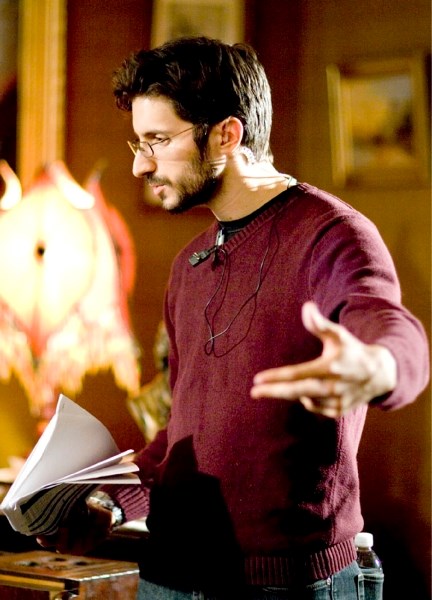Last month, the Fear and Fantasy Film Festival in Los Angeles premiered Mea Maxima Culpa, a short film by St. Paul filmmaker Eric Spoeth, who is already planning his next piece that he hopes will be feature-length.
Like his last project, which was an adaptation of Dante’s Inferno and Edgar Allen Poe’s The Telltale Heart, Spoeth is once again taking influence from literature, but this time it stems from the words of Russian novelist Leo Tolstoy.
Entitled ‘Lot’, the piece is based on Tolstoy’s short story How Much Land Does a Man Need. The story follows a peasant who desires to own more land and accepts a challenge to travel across a great distance in one day to claim any piece of land he wants as long as he makes it back before sunset. After traveling all day, he arrives back at the starting point and drops dead from exhaustion. His servant then buries him in a grave six feet long.
“The moral is that’s how much land a man needs,” he noted, regarding the story’s climax. “Within that framework, we’ve built in a lot of modern references and commentary into the housing boom/bust that we’ve experienced throughout Alberta and how wealth in the west is a perceived wealth and not something we actually own.”
Spoeth explains he was intrigued to make the story into a feature film because of his interest in the Russian author’s folk tales and the setting of the story. Tolstoy has long been an inspiration for Spoeth.
The filmmaker is working on the project alongside another producer and is looking to shoot it locally here in St. Paul.
“A lot of the geography in Russia is very similar to northern Alberta,” he said. “We thought that we could do it here with local resources. We have contacts with aerial photography companies and a helicopter company. We also have actors who are local.”
Because of the tax credit offered by the provincial government to attract foreign production companies, more films are being shot in Alberta, Spoeth said. The province’s landscape and weather has also proved to be valuable for films set in certain places and in different seasons.
Spoeth believes the rise in the number of movies using Alberta’s elements has potentially given way to the increase in filmmakers in the province, especially those living in such remote areas.
“When you grow up in a small town or rural area, like St. Paul, I think that sometimes you may have nothing better to do than watch films or come up with your own creative ideas,” he said. “The other thing is that you’re kind of a big fish in a small pond versus growing up in a large urban centre.
“It might seem like a coincidence, but I do think that you find gems in small areas of people,” he continued. “In St. Paul, we have several really well-known artists in different disciplines.”
Recognizing this growing trend of younger people who are interested in film, Spoeth has become involved with Living Water College in Derwent. The school is trying to set up a three-year program that will teach liberal and fine arts, while also having a filmmaking component.
He said the program would have topics such as philosophy, astronomy and mathematics, which are all important for developing a storytelling base.
“The idea behind that arts type of education is based on the philosophy that an artist doesn’t just need the technical skills, but also the ability to reason and come up with good ideas,” he said. “There are a lot of technically skilled people in Alberta that graduate from film schools, but there are very few writers and directors.
“Not very many people know how to make a good story and understand why people do what they do and bring that out in actors,” he added. “Those kinds of jobs are often imported from other cities.”
For those interested in becoming writers or directors, Spoeth said there’s great experience to be learned from making your own films and taking advantage of being in a rural setting.
“I usually recommend for people to just go ahead and make the film that they want to make,” he said. “At least they’re developing that storytelling ability. That’s really the best path to becoming a director rather than trying to work on big films when you’re a small fish in a huge ocean.”



